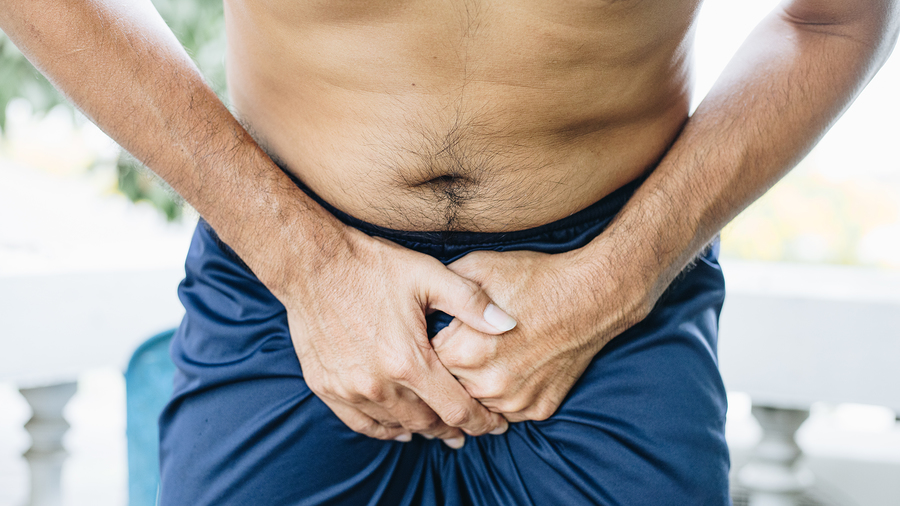There is medical term called Nocturia. Sounds like it could be a villain from either the Marvel or DC Universe. Unfortunately, it’s a villain for many men who want to reduce nighttime urination.
Men who wake up 2 or more times during the night to go to the bathroom.
It’s one of the most common urinary problems in older men. And it seems to effect 50% of men over the age of 50. And 70% of men over the age of 80.
So what are the dangers of Nocturia?
Outside of being annoying, this increase in nighttime urination disturbs sleep patterns, which can contribute to poor health, lower energy, depression, and increased overall mortality. And for older adults it increases their risk for falls. And the potential injuries that could be the results of hitting the floor or other objects in the room.
But men, what if you could reduce nighttime urination by 64%?
And limited your trips to the bathroom at night to no more than one time? Would you be interested in learning how?
If yes, then let me tell you about a successful human trial that did just that.
This trial studied a group of men who ranged in age from 45 to 72 years old. Their urinary symptoms were assessed at the start of the study. During this assessment 87% of men reported some degree of Nocturia. Roughly 50% of the men got up one time at night. And 37% of men got up two to three time each night to urinate.
All subjects were given one capsule that contained the following:
-
180 mg of Beta-sitosterol
-
100 mg of Pygeum Bark Extract
-
15 mg of Lycopene
-
10 mg of Boron
-
2 mg of Melatonin
They took this capsule daily for 60 days. Researchers then evaluated the number of trips they had to the bathroom to go pee. The 87% who suffered from Nocturia at the start of the study declined to only 23%, which was a 64% reduction.
And for those in the study who got up 2 or more time to go to the bathroom, none suffered from this degree by the end of the study. In fact, many of these men were able to reduce nighttime urination to zero.
Now you might not be able to combine all 5 of these ingredients into your lifestyle. So let’s look at each one to see how they can benefit men and improve their urinary tract.
Beta-Sitosterol is a plant sterol. It is a chemical compound that inhibits an enzyme in the prostate gland called 5a-reductase. This enzyme converts testosterone to dihydrotestosterone, which results in an enlarged prostate. An enlarged prostate typically blocks the flow of urine through the urethra. This results in less urine being emptied out of the bladder and contributes to more frequent trips to the bathroom.
In several clinical studies, the use of beta-sitosterol in men with an enlarged prostate experienced a 50% reduction in lower urinary tract symptoms.
Pygeum Bark Extract comes from the African cherry tree. This ingredient helps to control bladder over-activity and reduce prostate enlargement. Some clinical trials showed a range from 10% to 32% reduction in the need to urinate at night.
Lycopene is found in tomatoes and other red or pink fruits and vegetables. This ingredient has anti-inflammatory properties. And it tends to concentrate in the prostate gland. Similar to beta-sitosterol it can reduce the production of dihydrotestosterone to help remove one of the major factors that cause the prostate to enlarge.
Lycopene also has anti-proliferation properties, which helps prevent abnormal cell growth. This also helps to prevent the enlargement of the prostate.
Boron is a mineral that helps to reduce several markers of inflammation. It is involved in maintaining proper balance and expression of the sex hormones. And can help to prevent the chain of events that lead to an enlarged prostate.
Melatonin is a hormone produced by your pineal gland to help regulate your sleep-wake cycles. Commonly used as a supplement to help people get a better night of sleep, this hormone has been successfully used in studies designed to treat Nocturia. In several studies, 2 mg of melatonin help to reduce the number of nighttime trips to the bathroom by at least a factor of one.
Reduce Nighttime Urination – Concluding Thoughts
While it might be difficult to add all 5 of these ingredients to your daily routine, the good news is that each one has shown positive benefits in helping to reduce nighttime urination. Pick the one ingredient that you feel best about and try to incorporate it into your daily routine. Use that ingredient for 30 days. And if you find a benefit in reducing your nighttime trips to the bathroom, then continue to use it.
If no results, then choose a different ingredient and try the same 30 day process. Eventually you will find something that can help you reduce nighttime urination and provide you with a better quality of life.
Blessing Lives Through Nitric Oxide Therapy!
Dan Hammer

Leave a Reply
You must be logged in to post a comment.